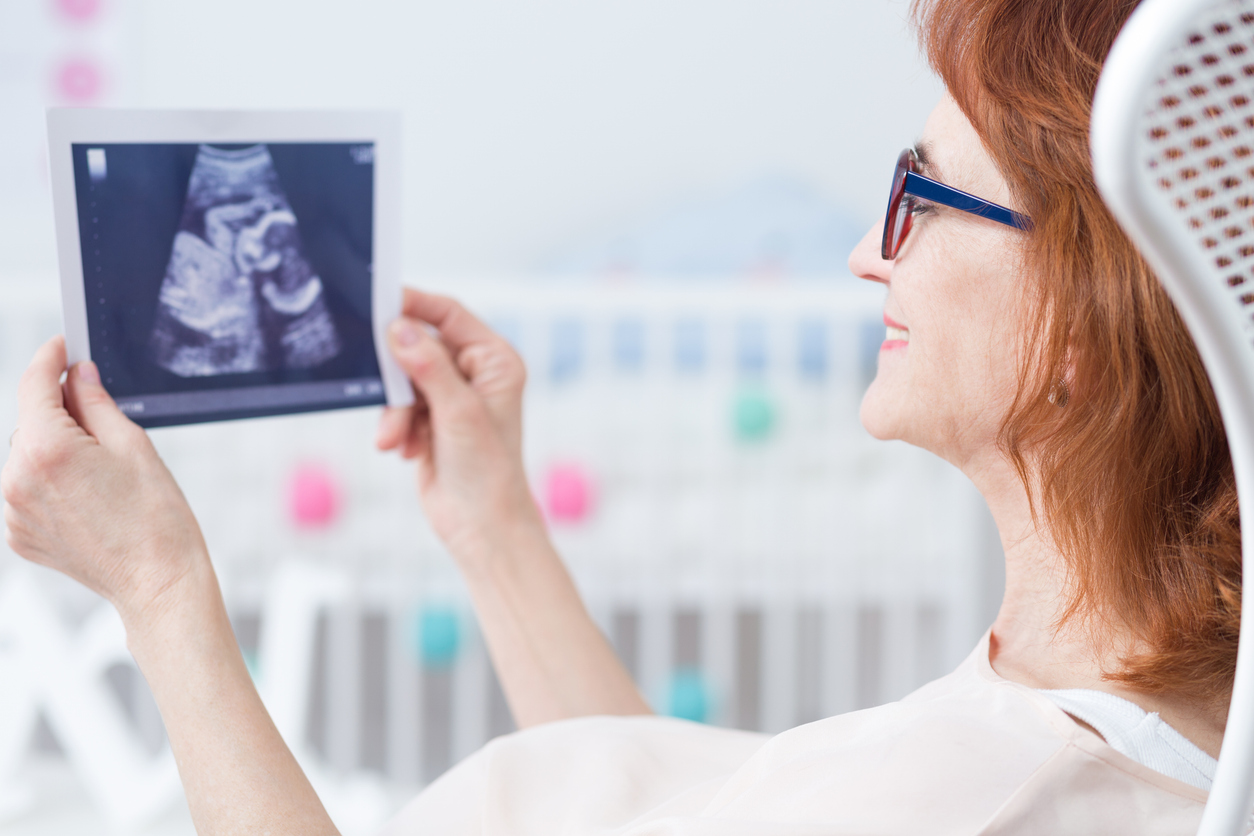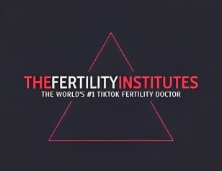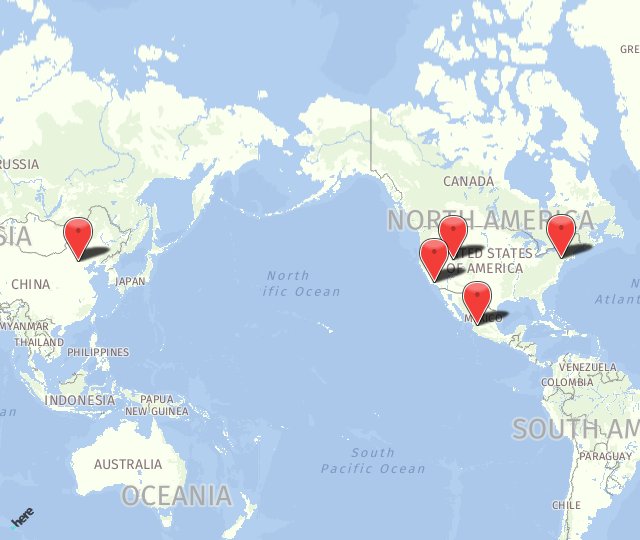Now Available at The Fertility Institutes
Exploring preconception, prenatal, and postpartum care for patients in their 50s*

Edited For Pertinency and Practical Application by
Dr. Jeffrey Steinberg - Medical Director; The Fertility Institutes
* Original Article By R.A. Newman, MD and T. Esakoff, MD
Over the past decade, the overall birth rate in the United States has declined. However, the birth rate in people aged 45 to 49 years at delivery has risen 12% in recent years, as it has in people 50 years and older. Since at least the 1970s, a pregnant person aged 35 or older, has been categorized as being of “advanced maternal age” (AMA). This age was chosen based on data demonstrating a decline in fertility and an increased risk for genetic anomalies in people 35 years and older at the time of delivery. Yet data from newer studies indicate no single age at which the risk of pregnancy changes.

Rather, as age at the time of pregnancy increases, the potential risks do too. A subset of advanced maternal age (AMA) has emerged: the parturient – pregnant woman of “very advanced maternal age (vAMA),” or patients who are 45 years at delivery. However, increasingly, studies are grouping pregnant individuals into categories of 5-year increments: 35 to 39 years, 40 to 44 years, 45 to 49 years, and 50 years and older. The focus of the information being presented here to patients of the Fertility Institutes will be for those women and couples at the current upper limit of parturition (able to carry a pregnancy) – people who are 50 years or older at the time of delivery.
Although the average childbearing age has markedly risen, it is important to note that the absolute number of people choosing childbearing in their 50s remains low. In 2022, the birth rate for individuals aged 50 to 54 years was 1.2 births per 10,000 individuals in the United States, up from 1.04 in 2021. In comparison, in 1997, the number of births in this age group was 1.44. The first reported case of an “elderly obstetrical patient” was written in 1917, and although the incidence of pregnancy in this population is going up, the information available to patients on this topic remain sparse. At the Fertility Institutes, we have long been known for assisting women beyond age 40 in achieving healthy pregnancy and in helping them overcome the sometimes seemingly very difficult challenges presented when women or couples present for pregnancy assistance at age 40+. Not all, but many of these people have spent 1, 2 or as many as 5 years attempting pregnancy unassisted. This article will review suggestions for optimal prenatal, labor and delivery, and postpartum care for people who choose to become pregnant in their late 40’s and 50s.
CONTACT US FOR MORE INFORMATION
OR TO SIGN UP FOR PREGNANCY OVER AGE 50
Preconception
The discussion about pregnancy later in life cannot be had without first acknowledging that this would often not be possible without the advancements in reproductive technology, specifically oocyte donation and in vitro fertilization (IVF). In fact, it was not until the 1990s that individuals over 40 years old were accepted as donor oocyte recipients. Much of the reticence may have stemmed from the question of whether an “aging uterus” can provide a receptive environment for embryo implantation and development.
Evidence from animal studies has demonstrated that the uterus has decreased hormonal responsiveness as it ages. For humans, nomenclature exists for ovarian aging in the context of defining menopause; however, there is no analogous definition for when a uterus may be considered unable to support a pregnancy.
In the 1990s, The Fertility Institutes, as part of a group of reproductive endocrinologists sought to assess whether menopausal individuals aged 50 to 59 years could become pregnant with the assistance of IVF. This was considered a reasonable investigation, given evidence that uteruses of older individuals respond to hormone replacement therapy, with the authors identifying the primary barriers to postmenopausal conception as being the “physical and psychological health of potential recipients.”
The devised protocol included the following medical screenings: stress treadmill electrocardiography (EKG), mammography, chest radiography, glucose tolerance test, fasting serum insulin, fasting cholesterol and lipoproteins, complete metabolic panel (CMP), prothrombin time/partial thromboplastin time, thyroid stimulating hormone (TSH), complete blood count (CBC), and Papanicolaou Test. Participants also underwent infectious disease screening (HIV, syphilis, hepatitis) as well as a reproductive workup (transvaginal ultrasound, hysterosalpingogram, endometrial biopsy on hormone replacement, hamster egg penetration test, and partner semen analysis). Finally, 2 independent psychologists interviewed each couple. In this cohort, 8 patients became pregnant; 1 patient underwent a miscarriage, and, at the time of publication, only 3 had delivered, and 4 had ongoing pregnancies.
Since this study was completed, findings from several larger case series have been published on the reproductive outcomes of pregnancies in individuals 50 years and older.
Although details of the exact preconception medication and psychological evaluations vary in each study, in general, and in the study by the Fertility Institutes, individuals 50 years and older planning to use IVF to conceive were required to undergo the following: treadmill stress test, mammogram, chest radiography, EKG, Papanicolaou Test, CBC, CMP, lipid panel, TSH and infectious disease workup. One study protocol also required participants to start with a simulated cycle to confirm endometrial response to exogenous estrogen and progesterone. Several of our colleagues, in their studies, also mentioned the requirement for psychological evaluation, with goals ranging from emphasizing “issues of parenting and child support” to “identifying potential issues due to unequal genetic participation in anticipated offspring…[and] disclosure to [the] child of his/her genetic background.” Some providers recommended a maternal-fetal medicine consult prior to conception to review the risks of pregnancy in advanced age, but this was not a uniform recommendation.
The American College of Obstetricians and Gynecologists (ACOG), Society for Maternal-Fetal Medicine, and American Society for Reproductive Medicine (ASRM) all fail to provide specific guidance for preconception counseling or evaluation in those older than 50 years who wish to become pregnant.
CONTACT US FOR MORE INFORMATION
OR TO SIGN UP FOR PREGNANCY OVER AGE 50
Prenatal Care
Although the ACOG Practice Bulletin “Pregnancy at Age 35 Years or Older” suggests that pregnancy in this age group be considered at higher risk for adverse maternal, fetal, and neonatal outcomes, the quality of evidence backing this statement is low. Traditionally, it has been assumed there is a linear relationship between advancing age and the rate of complications. Data from several studies, specifically in this cohort older than 50 years, confirm that there are often higher rates of complications, but a linear correlation was not seen.

Patients should be aware that if they choose to pursue pregnancy in AMA, they may be at higher risk for miscarriage or intrauterine fetal demise, multiple gestation, aneuploidy, gestational diabetes, hypertensive disorders of pregnancy, preterm delivery, and low birth weight. Additionally, findings from 1 study showed that over 30% of pregnant people aged 50 and older require antenatal hospitalization. The likelihood of experiencing perinatal complications is roughly 30% to 45%, depending on the study reviewed.
Interestingly, in contrast, data from a case series of 7 rare individuals aged 51 to 59 years, all of whom conceived spontaneously, showed that all had pregnancies without significant perinatal morbidity or mortality. Of note, this specific study is less generalizable to the US population; the median number of prior children in this group was 9, and people were immigrants of low socioeconomic status who had never used contraception. According to data from all other published studies on this topic, all patients used IVF to conceive. Although ART-IVF alone may partially contribute to the increased rate of material complications seen in the population older than 50 years, it could also have been a protective factor in that all individuals undergoing IVF were required to undergo very thorough and intense preconception screening. This may have eliminated people who are at higher risk for complications of pregnancy. Even when complications were seen, pregnancy appears to have been largely successful.
Even less data exist on the psychological implications of pregnancy and parenthood at ages above 50 years. Individuals pursuing pregnancy at age 50+ often express more worry about dying during pregnancy, birth defects, or having newborns who require admission to a neonatal intensive care unit.
Yet findings from several studies suggest that delaying childbearing may be a psychological advantage in that older mothers report they feel more prepared, resilient, secure, and competent entering motherhood at a more advanced age.
Nevertheless, this does not mean that advancing maternal age as a risk factor for adverse perinatal outcomes should be ignored. As the quality of data is not strong, the professional Obstetrical societies do not offer much specific guidance on whether or how to alter prenatal care for the age 50+ cohort.
However, several areas exist in which care recommendations are different for AMA patients, and these may be extrapolated to this population. For example, given that starting aspirin 81 mg a day between 12 to 16 weeks gestation is recommended for individuals older than 35 years who are at increased risk for preeclampsia, this may also be a reasonable practice to adopt in patients older than 50 years. At the Fertility Institutes, each individual patient is studied in depth, including general health conditions and recommendations for “special” attention are made for each patient.
Additionally, due to the increased risk for growth abnormalities while the baby is in the uterus, third-trimester (7th, 8th, 9th month) ultrasound growth assessments are recommended. In pregnant patients older than 40 years, the risk of intrauterine fetal demise (IUFD) has been shown to increase between 33 to 34 weeks gestation and continue until 39 weeks gestation and beyond. In light of this, most studies initiate weekly antepartum fetal surveillance between 32 to 36 weeks gestation. Little guidance exists on the “safest” mode of delivery for pregnant individuals older than 50 years.
The limited literature indicates that the majority of individuals in this situation undergo elective cesarean delivery, or it is recommended based on medical or surgical histories. Although there are no data to suggest that delivery is indicated at less than 39 weeks unless other medical complications arise, given that the risk of IUFD is known to increase beyond 39 weeks in AMA patients, delivery at gestational age is recommended.
The lack of specific guidance for patients older than 50 years likely reflects the small number of pregnant people in this group. Evidence from most studies demonstrates that pregnant individuals at this age typically do well with a standard of care similar to that for individuals between 35 and 49 years.
CONTACT US FOR MORE INFORMATION
OR TO SIGN UP FOR PREGNANCY OVER AGE 50
Postpartum – After Delivery
From a psychological perspective, a postpartum patient 50 years and older without chronic medical issues should recover similarly to a patient younger than 50 years. Yet the physical recovery from childbirth is perhaps easier than the adjustment to new parenthood. A few of the IVF entrance requirements used in this patient population require patients to have a psychological evaluation prior to undergoing fertility treatments. Providers often cite the desire to use these sessions to identify “potential issues due to unequal genetic participation” and concerns about “adjustment to parenthood at advanced parental age.” Yet less data exist on how these parents and children fare after delivery. At the Fertility Institutes, a comprehensive discussion is carried out with the Doctor concerning all aspects of the pregnancy, including what to expect after taking the baby home.
As mentioned previously, individuals entering pregnancy at an advanced age express more concern about the risks associated with pregnancy and childbirth; however, results are mixed as to whether AMA is associated with major depression after delivery. Although evidence from some studies fails to show an increased incidence of postpartum depression and stress, other evidence suggests there may be significant differences between older and younger pregnant people’s adaptation to parenthood. Absence of support, being a non-English speaker, having preexisting depression, or having a child in poor health or with a challenging temperament may be more significant contributors.
In fact, many mothers report feeling that being of an advanced age can be an advantage in that individuals in their circles often are already parents and can offer insight and assistance. Additionally, older mothers often report feeling better prepared to care for their newborns, with parenting styles observed to be supportive and close.
Of note, most of these studies did not account for the impact of maternal socioeconomic status (SES) or education level. When this was factored in, being of higher SES and having more education were protective against poor maternal or neonatal psychological or developmental outcomes.
Although there may be benefits to waiting to become a parent, it is essential to acknowledge the unavoidable reality that the average life expectancy in the United States is only 76.1 years. There is greater likelihood that children of older parents will experience the loss of a parent earlier on in their lives. Before patients start the journey to conceive, at the Fertility Institutes, we offer ample opportunity to discuss all such issues and are able to offer referral to mental health care professionals for those who express a need for additional assistance.
CONTACT US FOR MORE INFORMATION
OR TO SIGN UP FOR PREGNANCY OVER AGE 50
Conclusion
Pregnancy at 50 years and older remains infrequent, although at the Fertility Institutes, we see patients monthly at ages 50+ interested in becoming pregnant. It is certainly becoming more common. Nevertheless, data are scant, and it is difficult to make statements regarding individual levels of care to be provided to this highly motivated group of women and men. Although data from several studies demonstrate that pregnancy complications are not more prevalent in this cohort, there are also data demonstrating increased incidences of several adverse perinatal outcomes.

At the Fertility Institutes, we have no “pre-set” regulations involving who may or may not qualify for treatment with us at age 50+. Each patient and situation is evaluated on an individual basis and comprehensive information is provided to each prospective patient. Then, as a “team”, headed by the expertise of Dr. Steinberg and all of his supporting physicians, nurses, scientists, psychologists and pediatricians, decisions are made regarding the safest and most efficient way to assist. In general, 94% of patients at the Fertility Institutes becoming pregnant over age 45 years utilize egg donors. As advancing reproductive technology has made pregnancy in individuals 50 years and older achievable, this phenomenon is unlikely to disappear in the foreseeable future. Pregnancy can be the ultimate stress test on the body. Thus, as is true for every woman considering pregnancy, and especially those aged 50 and older, patients should optimize their health before attempting conception, and they should receive comprehensive care, including management by the maternal-fetal medicine high risk pregnancy specialists. At the Fertility Institutes, we provide referrals to the most experienced and competent obstetrician high risk pregnancy specialists for your ongoing care of your “miracle” pregnancy.


